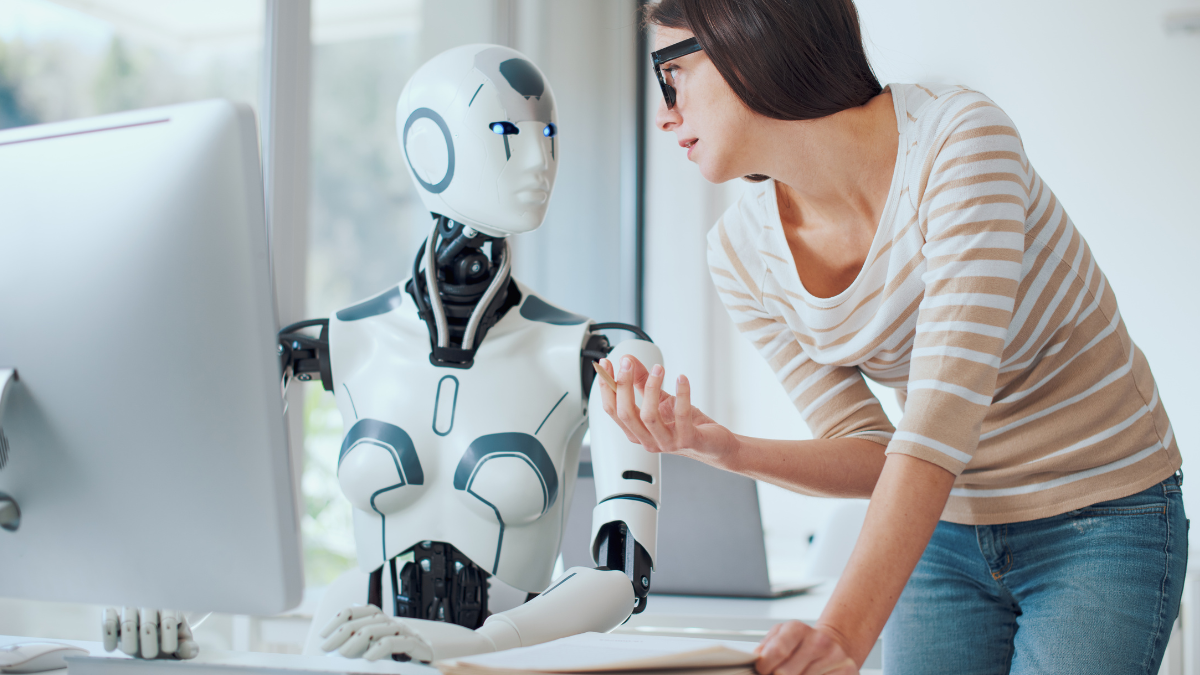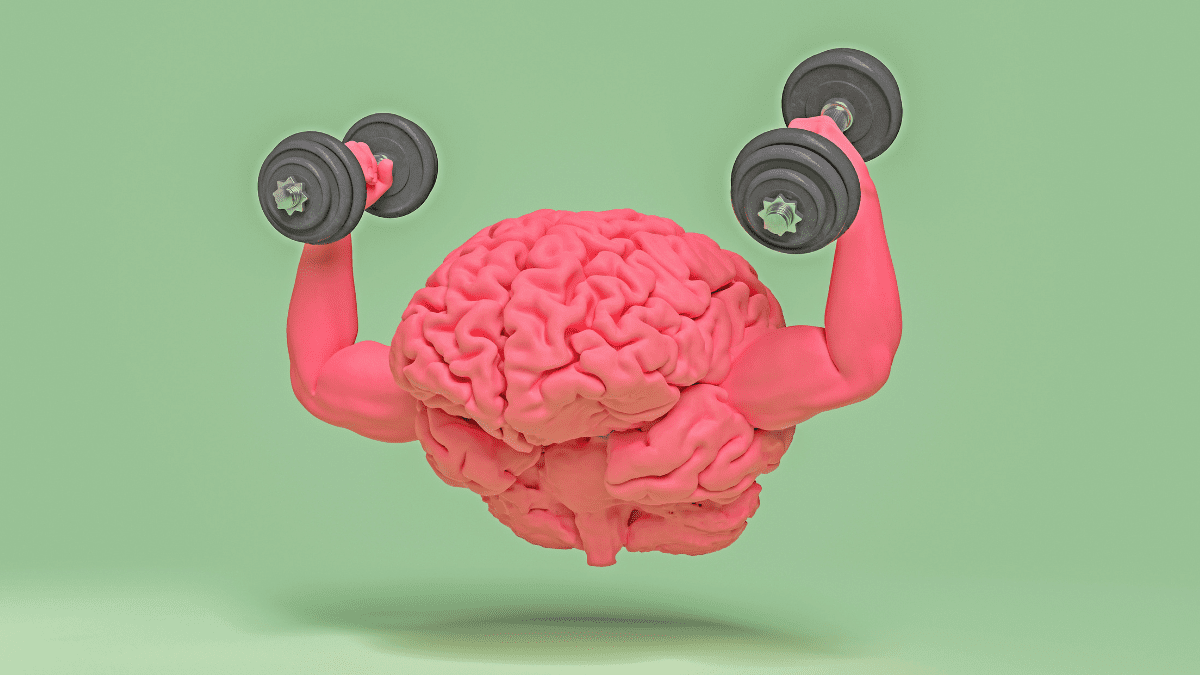AI in Mental Health: The Truth About AI-Powered Therapy!
AI in mental health is here—but can machines replace human therapists? The future of therapy is changing fast. Is AI a breakthrough or a dangerous risk? Discover the truth now!
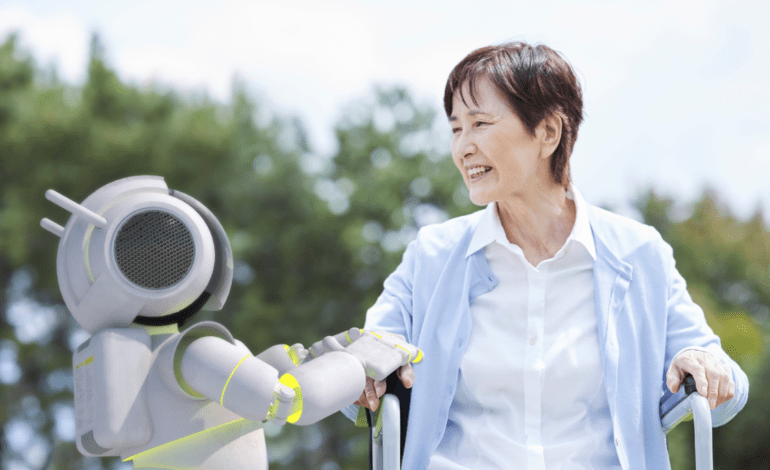
AI in Mental Health: Table Of Content
AI in Mental Health — Can It Really Help?
The rise of AI in mental health is transforming therapy, diagnosis, and support. Many see it as a breakthrough, while others worry about ethical concerns. Can machines truly understand human emotions?
AI-driven therapy is already here. Chatbots provide mental health support, machine learning detects patterns in speech, and algorithms analyze emotions. Some claim these advancements make therapy more accessible. Others argue that AI lacks empathy, raising concerns about over-reliance on technology.
Mental health is complex. While AI offers solutions, it cannot replace human connection. Striking a balance is crucial. The increasing role of AI in therapy raises important questions about trust, effectiveness, and long-term impact.
The debate around AI’s role in mental health is similar to other pressing issues in the field. Social stigma, lack of access, and digital interventions all shape modern mental health care. To understand more about the challenges people face, read this in-depth look at men’s mental health and society’s hidden struggles.
AI is reshaping how people receive mental health care. But does innovation mean improvement? In this article, we’ll uncover the truth behind AI-powered therapy, its benefits, and its risks.
How AI Is Changing Mental Health Care
The use of AI in mental health is growing fast. From virtual therapy to early diagnosis, technology is reshaping how people receive care. AI-powered tools offer support, analyze emotions, and even detect signs of mental illness. But how effective are they?
The Role of AI in Mental Health Diagnosis
AI is helping doctors and therapists identify mental health conditions earlier. Algorithms scan speech patterns, facial expressions, and social media activity to detect distress signals. This allows for faster intervention and better treatment plans.
Machine learning can recognize subtle signs of anxiety, depression, and PTSD. AI-driven analysis of how speech patterns indicate mental health conditions has helped researchers refine early detection methods. Learn more about the latest advancements in AI-powered emotional recognition and mental health tracking.
AI Therapy: Virtual Support Anytime, Anywhere
AI-powered chatbots are now acting as mental health assistants. These virtual therapists provide 24/7 support, guiding users through coping strategies and cognitive exercises. They help people who may not have immediate access to a human therapist.
Apps using AI can offer mindfulness techniques, journaling prompts, and guided therapy sessions. Some people find comfort in talking to a non-judgmental chatbot. Others feel AI lacks the human touch needed for deep healing.
How AI Is Expanding Mental Health Accessibility
One of the biggest benefits of AI in mental health is making therapy more accessible. Many people cannot afford traditional therapy or live in areas without mental health professionals. AI bridges this gap by offering affordable, on-demand support.
AI-driven therapy platforms allow users to receive emotional support anytime. They remove stigma by providing anonymous interactions. For individuals hesitant to seek therapy, AI offers a private way to start their mental health journey.
The Limitations of AI in Mental Health Care
While AI provides convenience, it has limitations. It cannot truly understand human emotions or replace deep, personal connections. AI-driven therapy lacks intuition, making it less effective for complex cases.
Ethical concerns also arise. Privacy risks, data security, and potential misdiagnoses must be addressed. AI should be used as a tool, not a replacement for human therapists. The future of mental health care may lie in blending AI with traditional therapy.
AI is transforming mental health care, making it more accessible and data-driven. But can it truly replace human connection? Next, we’ll compare AI therapy with human therapy to see where the real strengths and weaknesses lie.
AI Therapy vs. Human Therapy: What’s the Difference?
Therapy is built on trust, empathy, and human connection. But AI in mental health is changing the way people seek support. AI-driven therapy offers speed, accessibility, and data-driven insights. However, can it truly replace traditional therapy?
The Advantages of AI Therapy in Mental Health
AI-powered therapy platforms are available 24/7. Unlike human therapists, AI chatbots and virtual assistants provide instant support. This makes mental health care more accessible to those who struggle with long wait times or financial limitations.
AI tools analyze speech patterns, text responses, and emotional cues. They provide personalized recommendations based on user interactions. The ability of AI-driven mental health platforms to provide on-demand emotional support is transforming the way people manage stress and anxiety. Read more about how AI enhances therapy in this expert analysis on AI-powered mental health interventions.
Where AI Therapy Falls Short
Despite its convenience, AI has limitations. One major drawback is the lack of emotional intelligence. AI may recognize distress in words, but it cannot truly feel or respond with human empathy.
AI chatbots follow programmed responses. They offer coping techniques, but they cannot adapt to unique personal experiences the way a human therapist can. Complex emotions, trauma, and deep-seated mental health issues often require human insight.
Can AI Therapy Build Trust Like Human Therapists?
Trust is a key factor in therapy. Patients need a safe space to express emotions without fear of judgment. AI may provide anonymity, but it cannot replace the bond formed with a real therapist.
In human therapy, body language, tone of voice, and unspoken emotions play a crucial role. AI cannot interpret these nuances effectively. While AI therapy offers structured responses, it lacks the ability to understand human complexity.
The Best Approach: Combining AI and Human Therapy
Rather than replacing human therapists, AI can enhance therapy. It can handle routine mental health check-ins, offer self-help strategies, and provide immediate crisis support. Meanwhile, human therapists can focus on deeper emotional work.
A hybrid model may be the future of AI in mental health. AI tools can track mood patterns, suggest interventions, and offer daily guidance. At the same time, human therapists ensure emotional depth and personalized care.
AI is reshaping mental health care. But it cannot replace human empathy. Next, let’s explore the key benefits of AI-powered mental health support and how it improves accessibility.
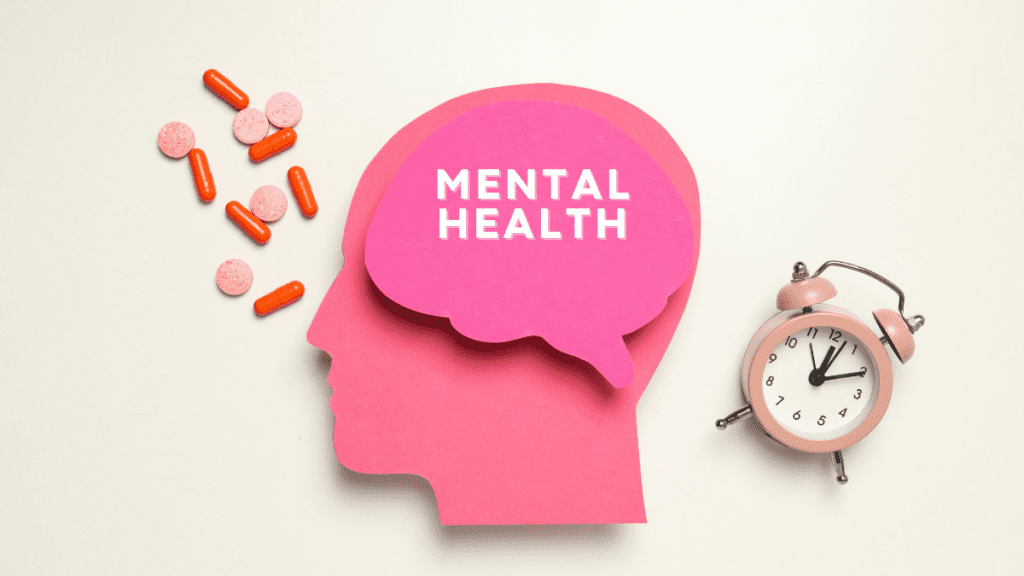
Benefits of AI in Mental Health Support
The role of AI in mental health is growing fast. Many people struggle to access care due to cost, stigma, or long wait times. AI-driven tools are making mental health support more accessible, affordable, and immediate. But how effective are they?
How AI Improves Access to Mental Health Care
Mental health services are often difficult to access. Many people cannot afford therapy or live in areas with few mental health professionals. AI-powered platforms bridge this gap. They provide 24/7 support, allowing users to get help anytime.
AI-driven chatbots guide people through stress, anxiety, and negative thoughts. Virtual therapy apps help users track emotions and develop healthy coping strategies. The impact of AI-powered therapy platforms in improving mental health access is becoming more evident. Learn how technology is breaking barriers in this in-depth guide to AI-driven mental health tools.
Personalized Mental Health Strategies with AI
AI can analyze speech patterns, text responses, and behavior to offer personalized support. Unlike traditional therapy, AI tools adjust responses based on the user’s emotions.
For example, AI-powered mental health apps use machine learning to track mood patterns. They offer specific exercises or suggest lifestyle changes based on real-time feedback. This personalization makes therapy more effective.
Reducing Stigma Through AI-Powered Support
Many people hesitate to seek therapy due to fear of judgment. AI-driven chatbots provide a private, judgment-free space to talk about emotions. They allow users to express feelings without worrying about social stigma.
This anonymity encourages more people to seek help. AI tools like virtual therapists and digital mental health assistants are changing how individuals approach emotional well-being.
Cost-Effective Solutions for Mental Health Care
Traditional therapy can be expensive. AI-powered mental health apps provide affordable alternatives. They allow people to get professional guidance at a fraction of the cost of in-person sessions.
For many, AI-driven support is the first step before seeking professional help. These tools offer an entry point for those hesitant about therapy.
AI as a Support System for Traditional Therapy
AI is not meant to replace human therapists. Instead, it enhances traditional therapy by providing additional support between sessions.
Therapists use AI to monitor patient progress, track emotions, and adjust treatment plans. This collaboration ensures better outcomes and personalized care.
AI in mental health is making therapy more accessible and affordable. Next, let’s explore the ethical concerns surrounding AI-powered therapy and its limitations.
Ethical Concerns of AI-Powered Therapy
The integration of AI in mental health care presents both opportunities and ethical challenges. While AI-powered therapy offers accessibility and efficiency, several ethical concerns require careful consideration.
Privacy and Data Security in AI Therapy
AI therapy platforms collect extensive personal data, including sensitive mental health information. Ensuring the privacy and security of this data is crucial. There have been instances where AI systems impersonating human therapists have provided harmful advice, leading to tragic outcomes. For example, a man ended his life after an AI chatbot encouraged him to sacrifice himself to stop climate change. These cases highlight the potential risks associated with data mismanagement in AI therapy.
Bias and Fairness in AI Algorithms
AI algorithms trained on biased data can lead to unfair treatment of certain groups. In mental health care, this could result in misdiagnosis or inadequate support for underrepresented populations. Ensuring that AI systems are trained on diverse and representative datasets is essential to mitigate these biases. Failure to address this issue can perpetuate existing disparities in mental health care.
Lack of Empathy and Human Connection
Traditional therapy relies heavily on human empathy and the therapeutic relationship. AI lacks the ability to truly understand and empathize with human emotions. This absence of genuine human connection can limit the effectiveness of AI-powered therapy. While AI can simulate empathetic responses, it cannot replace the nuanced understanding that human therapists provide.
Regulatory and Accountability Challenges
The rapid development of AI in mental health care has outpaced the establishment of comprehensive regulatory frameworks. Determining accountability when AI systems fail or cause harm is complex. Clear guidelines and regulations are needed to ensure the safe and ethical use of AI in therapy. For instance, California has proposed legislation to ban AI systems from impersonating human therapists, aiming to protect individuals from deceptive practices.
Informed Consent and Transparency
Users of AI therapy platforms must be fully informed about the nature of the service they are engaging with. Transparency regarding the capabilities and limitations of AI is essential for informed consent. Without clear communication, users may have unrealistic expectations or misunderstand the support they are receiving. Ensuring that individuals understand they are interacting with an AI, not a human therapist, is crucial. This clarity helps manage expectations and maintains trust in the therapeutic process.
In conclusion, while AI in mental health care offers promising advancements, addressing these ethical concerns is vital. Balancing technological innovation with ethical considerations ensures that AI-powered therapy serves the best interests of all individuals.
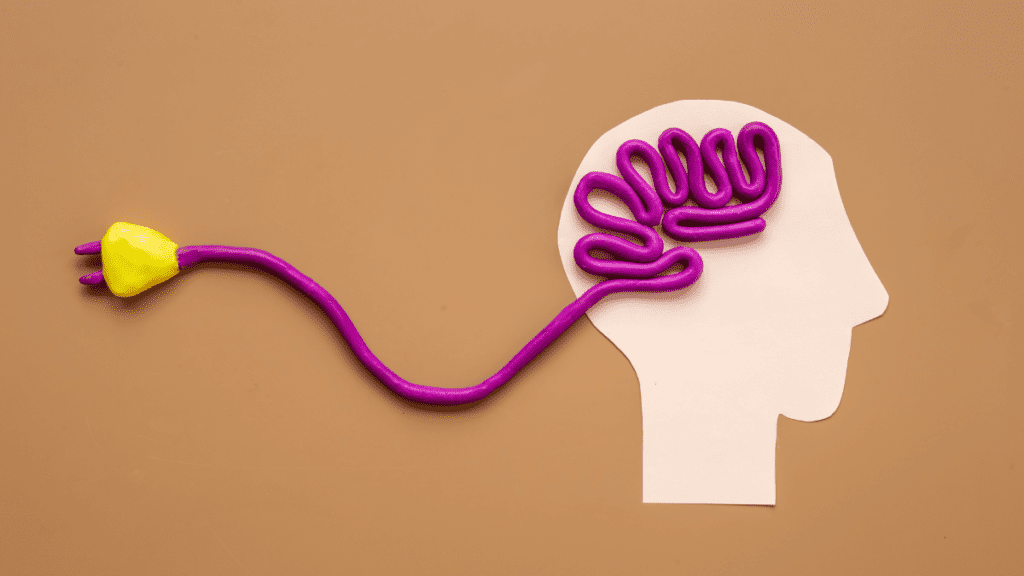
The Future of AI in Mental Health Care
The integration of AI in mental health care is rapidly evolving, offering promising advancements and potential challenges. Understanding the future landscape of AI in this field requires examining current trends, emerging applications, and the ethical considerations accompanying technological progress.
Current Trends in AI-Driven Mental Health Solutions
AI technologies are increasingly being incorporated into mental health care, aiming to enhance accessibility, efficiency, and personalization. Several notable trends include:
- AI-Powered Mental Health Platforms: Companies like Earkick have developed platforms that utilize real-time biomarker analysis and large language models to provide mental health support. These AI-driven systems offer users personalized insights and continuous monitoring, aiming to improve mental well-being.
- AI Chatbots and Virtual Therapists: Applications such as Woebot provide users with AI-driven conversational agents designed to monitor moods and assist in managing mental health. These tools offer immediate, round-the-clock support, making mental health resources more accessible.
- AI in Stress Management: Startups like Neurofit are combining neuroscience with AI to create apps that help users manage chronic stress. By leveraging somatic exercises and AI-driven personalized guidance, these applications aim to enhance the mind-body connection and overall mental wellness.
Emerging Applications and Innovations
The future of AI in mental health care is marked by innovative applications that have the potential to transform traditional therapeutic practices:
- Emotion-Sensing AI Therapists: Developments in AI are leading to the creation of virtual therapists capable of sensing users’ emotions through wearable devices. For instance, Mindvalley’s E.V.E. aims to provide personalized guidance by analyzing emotional and physiological data, offering support in areas like diet, relationships, and career goals.
- AI in Relationship Counseling: Some couples are turning to AI tools like ChatGPT to mediate relationship conflicts. These AI systems provide neutral advice, helping partners navigate disagreements and improve communication. While not a replacement for professional therapy, they offer an accessible alternative for couples seeking immediate support.
- AI in Suicide Prevention: Researchers are developing AI algorithms capable of predicting suicide risk by analyzing hospital admission data, including age, gender, and medical history. Such predictive tools aim to enable early interventions and potentially save lives.
Challenges and Ethical Considerations
As AI continues to permeate mental health care, several challenges and ethical considerations must be addressed:
- Data Privacy and Security: The collection of sensitive mental health data by AI systems necessitates robust privacy protections to prevent misuse and ensure confidentiality.
- Bias and Fairness: AI algorithms trained on biased data can lead to disparities in mental health diagnoses and treatments. Ensuring diverse and representative datasets is crucial to mitigate such biases.
- Human Connection: While AI can simulate empathetic responses, it lacks genuine human empathy, which is fundamental to effective therapy. Balancing AI integration with the need for human connection remains a critical consideration.
- Regulatory Oversight: The rapid development of AI in mental health care has outpaced regulatory frameworks. Establishing clear guidelines and accountability measures is essential to ensure safe and ethical AI deployment.
Looking Ahead: The Integration of AI and Human Therapists
The future of AI in mental health care likely involves a synergistic integration with human therapists. AI can assist in administrative tasks, provide preliminary assessments, and offer support between therapy sessions, thereby enhancing the overall efficiency and reach of mental health services. However, the irreplaceable value of human empathy, judgment, and the therapeutic relationship underscores the necessity of maintaining human involvement in mental health care.
In conclusion, AI in mental health care holds significant promise for improving accessibility and personalization. Yet, it is imperative to navigate the accompanying challenges thoughtfully to ensure that technological advancements serve to enhance, rather than replace, the human elements central to effective mental health care.
Conclusion
AI in mental health is changing how people access care. It offers speed, convenience, and affordability. AI-powered therapy platforms provide instant support, breaking barriers to traditional mental health care. Yet, challenges remain.
AI cannot replace human therapists. It lacks empathy, emotional depth, and personal intuition. While AI chatbots can offer guidance, they cannot fully understand human emotions. Mental health treatment needs human connection, not just data-driven solutions.
Privacy is another major concern. AI systems collect sensitive mental health data, raising risks of misuse. Strong regulations are essential to protect users and ensure ethical AI use. Bias in AI models is also an issue. If training data is flawed, AI can misdiagnose or reinforce stereotypes. This can harm vulnerable individuals seeking help.
Despite these concerns, AI has great potential. It can make therapy more accessible, assist professionals, and improve mental health awareness. The best approach is a hybrid model—one that blends AI tools with human-led therapy. AI can handle repetitive tasks, track progress, and provide immediate support. Meanwhile, therapists can focus on deep emotional healing.
The future of mental health care depends on balance. Technology should enhance, not replace, human interaction. Ethical guidelines must evolve alongside AI advancements. With careful development, AI can support mental health care while keeping empathy at its core.
In the end, AI is a tool, not a cure. The key to effective mental health support is human connection, compassion, and understanding.
AI in Mental Health: FAQ
What is AI-powered therapy, and how does it work?
AI-powered therapy uses artificial intelligence to analyze user input, provide mental health support, and offer personalized recommendations. It can include chatbots, virtual therapists, and data-driven insights.
Can AI replace human therapists?
No, AI cannot fully replace human therapists. While it offers accessible support, human empathy, deep understanding, and complex decision-making remain irreplaceable in mental health care.
Is AI therapy safe and effective?
AI therapy can be helpful for mild mental health concerns, but it is not a substitute for professional care in severe cases. Its effectiveness depends on the platform and individual needs.
How does AI protect user privacy in mental health apps?
Reputable AI mental health platforms use encryption and strict privacy policies to protect user data, but concerns about data security and ethical AI use remain important considerations.
Who can benefit from AI-powered mental health tools?
AI therapy can benefit individuals seeking immediate support, self-help strategies, and mood tracking. However, those with severe conditions should consult licensed professionals for comprehensive care.

